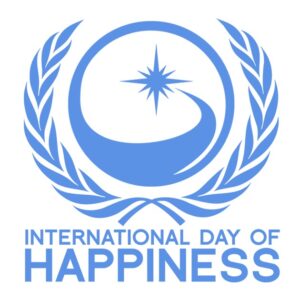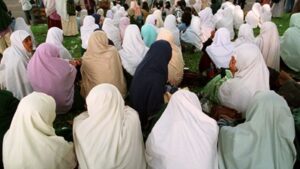
3月20日は「国際幸福デー」国連総会が定めました。
The United Nations General Assembly proclaimed March 20 to be the International Day of Happiness.
※UNGA 国連総会 ※proclaim 宣言する
世界の幸福度ランキングは、回答者は、6つのポイントを0点~10点の段階で評価します。
In the World Happiness Report, respondents are asked to rate their level of well-being on a zero-to-10 scale, with zero representing the worst possible life for them and 10 being the best.
Six variables(変化するもの、変数) are GDP per capita(一人当たりのGDP), healthy life expectancy (健康寿命), social support(社会的支援), generosity(寛容さ), freedom to make life choices(人生で重要な決定を下す際の自由度), and absence of corruption.(汚職、腐敗がないこと)
※well-being健康で安心なこと、満足できる生活状態、福祉(welfare)、福利、幸福
※on a scale of A to B AからBの段階、尺度で
6年連続で世界一幸福な国となったのは、フィンランド。近隣の北欧諸国も上位を維持。
Six-year winning streak for world’s happiest nation(見出し)
※streak筋、連続
For the sixth year in a row, Finland is the world’s happiest country.
The Nordic country and its neighbors Denmark, Iceland, Sweden and Norway all score very well.
今回の調査では、他人に対する善意がコロナ禍以前に比べて約25%上昇。
The World Happiness Report reveals a bright light in dark times. Benevolence is about 25% higher than it was pre-pandemic.
※benevolence情け深さ、慈悲心、博愛、善意 ラテン語でgood will ⇔malevolence
日本は47位でしたが、控え目な自己評価をしたり幸せを公然と自慢することをよしとしない事が原因とされます。
Japanese tend to have a lower self-assessment(自己査定、自己評価) than their Western counterparts. In Japan, there’s more weight on getting along with others in the community. Openly boasting about one’s happiness could be seen as self-centered and even frowned upon.”
※boast about 自慢する、鼻にかける
※frown upon 眉を顰める、ひんしゅくを買う
未来の予想が難しいVUCA時代。幸せを測るのはとても難しいですね。
It is difficult to measure happiness in the VUCA era.
VUCA=Volatility(変動性)Uncertainty(不確実性)Complexity(複雑性)Ambiguity(曖昧性)
4つの言葉の頭文字で構成された造語で、ビジネスや社会において変動性が高く未来の予想が立てにくい状態を指します。


